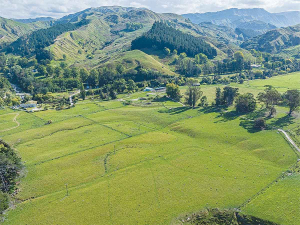Idea of killing cows to curtail methane emissions 'crazy'
Visiting US climate change expert Dr Will Happer says the idea of reducing cow numbers to greatly reduce methane emissions is crazy.
 The survey found that 95% of the 1,460 farmers surveyed think that reducing livestock methane won't impact global climate change.
The survey found that 95% of the 1,460 farmers surveyed think that reducing livestock methane won't impact global climate change.
According to a new farmer survey, many farmers are rejecting New Zealand’s current ruminant methane strategy.
The survey - prepared by NZ Farming, Groundswell NZ, and the Methane Science Accord – found that 95% of the 1,460 farmers surveyed think that reducing livestock methane won’t impact global climate change.
Additionally, 94% of farmers surveyed say they believe methane cuts should not be a necessary part of market access and 93% refuse to use methane inhibitors on their animals.
Duncan Humm of NZ Farming says there is growing unease in the sector around the ways in which methane inhibitors impact livestock.
“These interventions go against everything our farming systems stand for,” Humm says.
“How did we get this far down the track without consulting the very people expected to deliver these changes?” he adds.
Meanwhile, Helen Mandeno from the Methane Science Accord says that scientific research suggests that ruminants don’t contribute much to the warming of the planet.
“Professor David Frame has shown that New Zealand’s ruminants might, at worst, contribute four millionths of a degree Celsius warming per year,” Mandeno says. “It would take 250,000 years for that to amount to 1 °C.”
The three groups behind the survey say that despite New Zealand’s farmers being leaders in low-emissions food production, they feel ignored as methane reduction policies are pushed forward.
They say farmers want to know why money has been spent on methane tools without farmer consultation, why co-ops joined the AgriZero NZ public-private partnership without asking stakeholders, and who biotechnology tools like methane inhibitors are for if farmers don’t want them.
“Ruminant methane is a natural part of the carbon cycle – don’t punish farmers and their animals for a crime they didn’t commit,” the organisations say.
Fonterra’s impending exit from the Australian dairy industry is a major event but the story doesn’t change too much for farmers.
Expect greater collaboration between Massey University’s school of Agriculture and Environment and Ireland’s leading agriculture university, the University College of Dublin (UCD), in the future.
A partnership between Torere Macadamias Ltd and the Riddet Institute aims to unlock value from macadamia nuts while growing the next generation of Māori agribusiness researchers.
A new partnership between Dairy Women’s Network (DWN) and NZAgbiz aims to make evidence-based calf rearing practices accessible to all farm teams.
Despite some trying circumstances recently, the cherry season looks set to emerge on top of things.
Changed logos on shirts otherwise it will be business as usual when Fonterra’s consumer and related businesses are expected to change hands next month.

OPINION: Here w go: the election date is set for November 7 and the politicians are out of the gate…
OPINION: ECan data was released a few days ago showing Canterbury farmers have made “giant strides on environmental performance”.